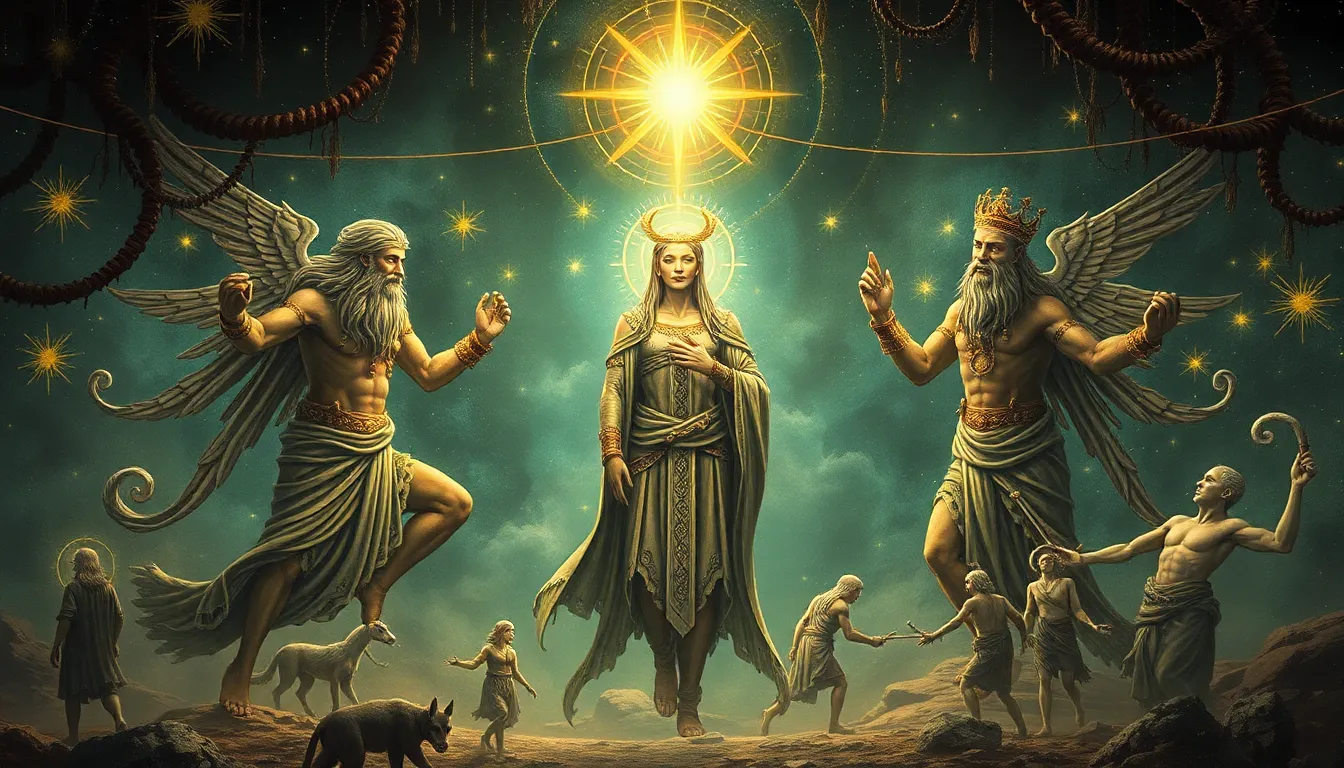Cultural Hero Myths: The Stories That Inspire Change
I. Introduction
Cultural hero myths are narratives that encapsulate the ideals, values, and struggles of a society through the depiction of heroic figures. These myths serve not only as entertainment but also as a means of imparting wisdom and encouraging societal progress. They play a crucial role in shaping cultural identity and inspiring individuals to enact change within their communities.
This article aims to explore the origins, characteristics, and impacts of cultural hero myths, as well as the evolution of these narratives in contemporary society. We will also delve into the critiques surrounding hero myths and discuss the creation of new heroes for future generations.
II. The Origins of Hero Myths
Hero myths have existed throughout human history across various cultures. From ancient civilizations to modern societies, these narratives have provided a framework for understanding human experience.
A. Historical context of hero myths across cultures
Hero myths can be traced back to ancient texts and oral traditions, where they served to explain natural phenomena, teach moral lessons, and unify communities. Each culture has its own unique set of heroes, reflecting their values and beliefs.
B. Common themes and archetypes in hero narratives
- The quest: A journey undertaken by the hero to achieve a significant goal.
- The mentor: A wise figure who guides the hero through challenges.
- The antagonist: A force or character that opposes the hero’s journey.
- The transformation: The hero undergoes significant change, often emerging stronger.
C. The role of oral traditions and storytelling in preserving these myths
Oral traditions have been vital in passing down hero myths through generations. Storytellers would engage audiences, ensuring that the lessons and values associated with these heroes were not forgotten.
III. Key Characteristics of Cultural Heroes
Cultural heroes share several defining traits that resonate across time and cultures.
A. Traits that define a cultural hero
- Bravery: The willingness to face danger or adversity.
- Integrity: A strong moral compass guiding their actions.
- Empathy: Understanding and sharing the feelings of others.
- Self-sacrifice: Putting the needs of others before their own.
B. The hero’s journey: stages and transformations
The hero’s journey typically involves several stages, including:
- Call to adventure: The hero is invited to leave their ordinary world.
- Trials and tribulations: The hero faces challenges that test their resolve.
- Transformation: The hero emerges changed, often with newfound wisdom.
- Return: The hero returns to their community, often as a changed individual.
C. The relationship between the hero and their community
The hero often embodies the values of their community, serving as a symbol of hope and inspiration. Their journey can reflect the struggles and aspirations of the people they represent.
IV. Prominent Cultural Heroes Throughout History
Throughout history, various cultural heroes have emerged, each representing the ideals of their respective societies.
A. Ancient heroes (e.g., Hercules, Gilgamesh)
Heroes like Hercules and Gilgamesh have shaped ancient narratives, showcasing strength, bravery, and the quest for knowledge and immortality.
B. Modern heroes (e.g., Martin Luther King Jr., Nelson Mandela)
In the modern era, figures such as Martin Luther King Jr. and Nelson Mandela have epitomized the fight for civil rights and social justice, inspiring movements worldwide.
C. Regional heroes and their local significance
Every region has its own heroes who resonate with local populations, such as:
- Frida Kahlo in Mexico, representing resilience and artistic expression.
- Mahatma Gandhi in India, symbolizing non-violent resistance.
- Harriet Tubman in the United States, a beacon of freedom and courage.
V. The Impact of Hero Myths on Social Movements
Hero myths have historically played a significant role in inspiring social movements, providing narratives that galvanize communities toward change.
A. Case studies of how hero myths have inspired change (e.g., civil rights movements)
During the civil rights movement, figures like Rosa Parks and Martin Luther King Jr. became symbols of resistance against oppression, motivating countless individuals to join the cause.
B. Analysis of the role of heroes in mobilizing communities
Heroic narratives can unite individuals around a common cause, fostering a sense of belonging and purpose. They encourage collective action and resilience in the face of adversity.
C. The psychological effect of hero stories on individuals and groups
Hero stories can instill a sense of hope and empowerment, promoting resilience and encouraging individuals to take action in their lives and communities.
VI. The Evolution of Hero Myths in Contemporary Society
As society evolves, so too do the narratives surrounding heroes, reflecting contemporary values and challenges.
A. New interpretations of traditional hero myths
Modern retellings of classic hero myths often challenge traditional gender roles, emphasize diverse perspectives, and critique societal norms.
B. The influence of media and technology on hero narratives
Social media and digital storytelling have transformed how hero myths are shared and consumed, allowing for greater engagement and participation from diverse audiences.
C. The rise of diverse and inclusive hero stories in modern culture
Today, there is a growing recognition of heroes from various backgrounds, including women, LGBTQ+ individuals, and people of color, broadening the scope of what it means to be a hero.
VII. Critiques and Controversies Surrounding Hero Myths
While hero myths can inspire, they also face valid critiques and controversies.
A. The potential for glorification and oversimplification
Hero narratives can sometimes glorify individuals, oversimplifying complex issues and reducing the contributions of many to a single heroic figure.
B. The impact of cultural appropriation on hero narratives
As stories are shared across cultures, there is a risk of cultural appropriation, where the significance of a hero’s story may be diluted or misrepresented.
C. The challenge of representing marginalized voices in hero myths
Many traditional hero narratives have overlooked or marginalized voices, leading to a lack of representation and inclusivity.
VIII. Creating New Hero Myths for Future Generations
As society continues to evolve, there is a pressing need to create new hero myths that reflect contemporary issues and values.
A. Identifying current cultural and social issues needing heroes
Today’s challenges, such as climate change, social justice, and mental health awareness, call for new heroes who can inspire action and change.
B. The role of education in fostering new hero myths
Educational institutions can play a vital role in promoting narratives that celebrate diverse heroes and encourage students to engage with their communities.
C. Encouraging grassroots storytelling to promote local heroes
Grassroots movements can highlight local heroes, fostering a sense of community ownership and connection to the narratives that shape their lives.
IX. The Psychological and Emotional Resonance of Hero Myths
Hero myths hold significant psychological and emotional power, aiding in personal and communal healing.
A. The therapeutic power of hero stories in personal and communal healing
Hero narratives can provide solace and strength during difficult times, helping individuals process their experiences and emotions.
B. How hero myths can foster resilience and hope
By showcasing triumph over adversity, hero myths can inspire resilience and a sense of hope in individuals facing challenges.
C. The role of empathy in connecting with hero narratives
Empathy allows individuals to connect deeply with hero stories, fostering understanding and a sense of shared humanity.
X. Conclusion
Cultural hero myths are powerful narratives that shape societies and inspire change. They encapsulate the values, struggles, and aspirations of communities, serving as sources of motivation and hope. As we continue to evolve, the ongoing relevance of these stories reminds us of the potential for heroism within us all and the transformative power of storytelling in fostering



